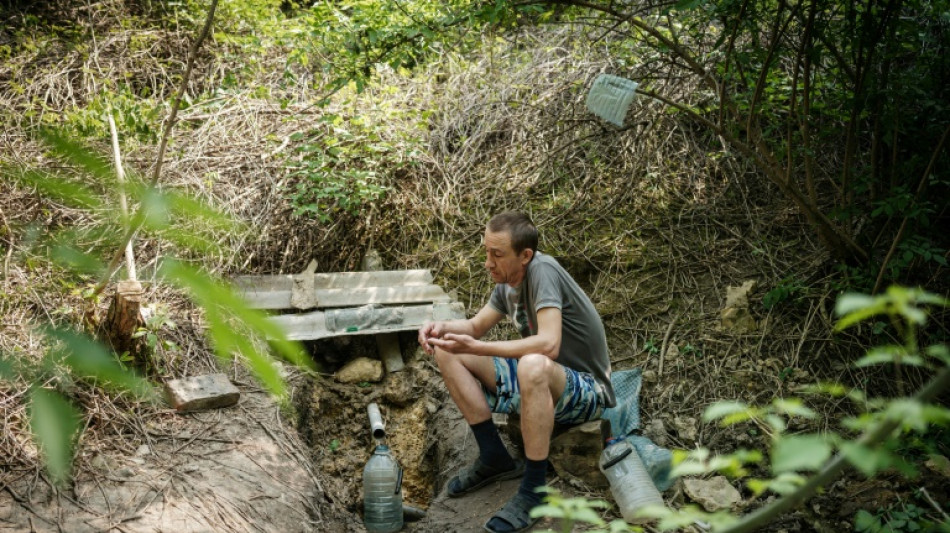
-
 Air Force One: iconic jet gets the Trump treatment
Air Force One: iconic jet gets the Trump treatment
-
Hollywood studios and unions call on Trump to offer tax breaks
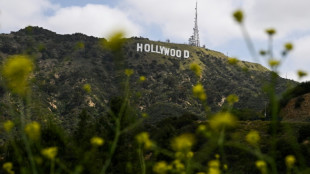
-
 Forest striker Awoniyi rushed to hospital for abdominal surgery: reports
Forest striker Awoniyi rushed to hospital for abdominal surgery: reports
-
Rain soaks first practice day at PGA Championship

-
 Progressive influencer tells of detention at US airport
Progressive influencer tells of detention at US airport
-
Rapper Tory Lanez attacked in US prison: authorities

-
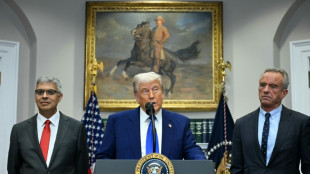 Trump announces drug price cut with swipe at Europe
Trump announces drug price cut with swipe at Europe
-
Hollywood stars condemn Gaza 'genocide' on eve of Cannes Festival
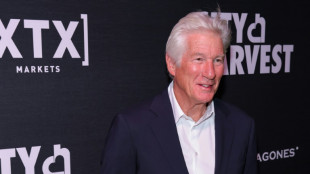
-
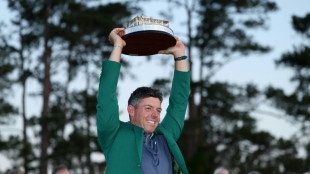 McIlroy looks to the future after post-Masters thrill ride
McIlroy looks to the future after post-Masters thrill ride
-
Sinner set for first Italian Open test, Sabalenka marches on
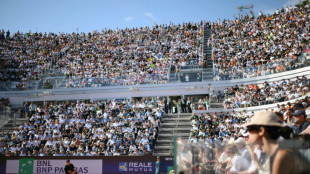
-
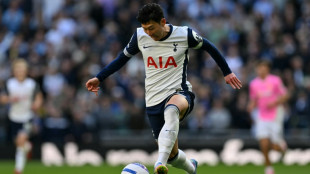 Son wants Europa glory to 'complete' Spurs career
Son wants Europa glory to 'complete' Spurs career
-
First group of white South Africans arrive in US for resettlement

-
 Trump mulls joining Ukraine talks in Turkey, Kremlin silent on Putin
Trump mulls joining Ukraine talks in Turkey, Kremlin silent on Putin
-
US, China agree to slash tariffs as Trump says will speak to Xi

-
 Spanish rider Landa returns home for 'long recovery' after Giro crash
Spanish rider Landa returns home for 'long recovery' after Giro crash
-
Kurdish militant group PKK ends decades of armed struggle
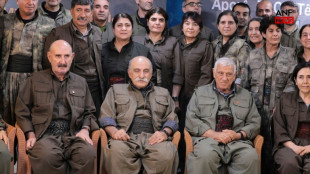
-
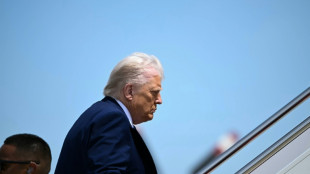 Trump says would be 'stupid' to reject Qatari Air Force One gift
Trump says would be 'stupid' to reject Qatari Air Force One gift
-
Uruguay's ex-president Mujica receiving palliative care: wife
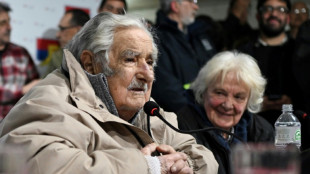
-
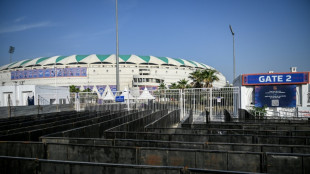 Remainder of IPL to be held between May 17-June 3 after ceasefire
Remainder of IPL to be held between May 17-June 3 after ceasefire
-
Hamas frees US-Israeli hostage

-
 Trump defends resettling white South Africans as refugees in US
Trump defends resettling white South Africans as refugees in US
-
Sean 'Diddy' Combs was 'coercive and criminal,' jury hears

-
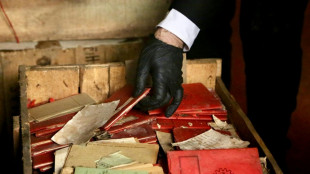 Nazi files found in champagne crates in Argentine court basement
Nazi files found in champagne crates in Argentine court basement
-
Myanmar junta airstrike kills 22 at school: witnesses
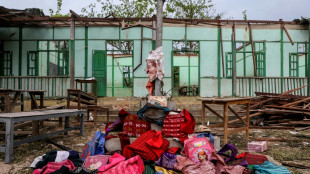
-
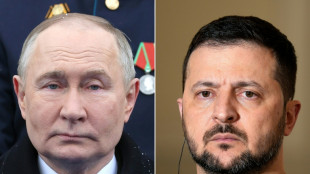 Zelensky wants Trump at peace talks, Russia silent on whether Putin will go
Zelensky wants Trump at peace talks, Russia silent on whether Putin will go
-
Ground-breaking Grand National winner Blackmore retires

-
 Trump heads on major Middle East tour
Trump heads on major Middle East tour
-
Nepal holds tribute for disappearing glacier
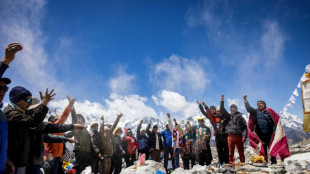
-
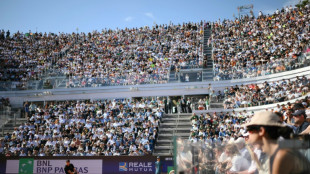 Sinner eases into Italian Open last 16, Osaka dumped out
Sinner eases into Italian Open last 16, Osaka dumped out
-
Real Madrid duo Vinicius, Vazquez injured

-
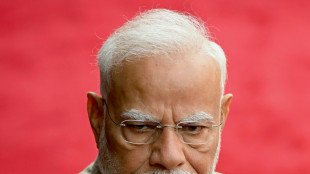 Indian PM Modi vows strong response to any future 'terrorist attack'
Indian PM Modi vows strong response to any future 'terrorist attack'
-
Opening statements start in Sean 'Diddy' Combs trial

-
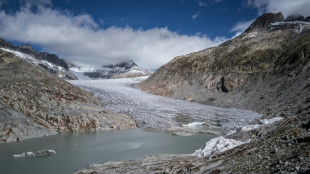 Snow cover of Swiss glaciers below average this year: study
Snow cover of Swiss glaciers below average this year: study
-
Jihadist attack kills 'several dozen' in Burkina Faso
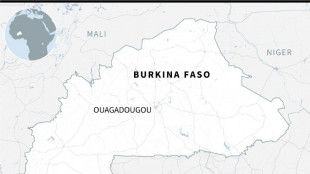
-
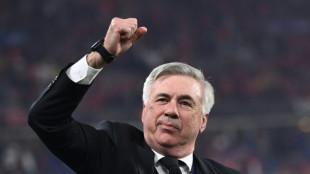 Ancelotti to leave Real Madrid for Brazil job
Ancelotti to leave Real Madrid for Brazil job
-
Trump announces drug prices cut with swipe at Europe
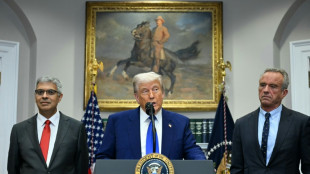
-
 Ancelotti exits Madrid, hoping to add World Cup with Brazil
Ancelotti exits Madrid, hoping to add World Cup with Brazil
-
US, China agree to slash tariffs as Trump says to speak with Xi soon

-
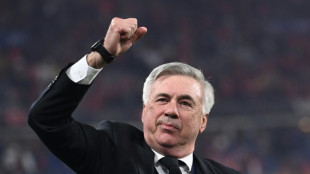 Ancelotti to take over as Brazil coach
Ancelotti to take over as Brazil coach
-
Israel urges ICC to drop arrest warrants against PM
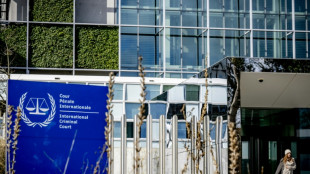
-
 Poland to close Russian consulate in Krakow over 'sabotage'
Poland to close Russian consulate in Krakow over 'sabotage'
-
Kremlin rejects Europe's 'ultimatums' for truce with Ukraine
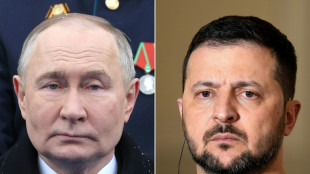
-
 Ireland rugby captain Doris ruled out for up to six months
Ireland rugby captain Doris ruled out for up to six months
-
Algerian attack survivor vows to be heard in court battle with award-winning author

-
 Europa League glory could be 'turning point' for Spurs: Postecoglou
Europa League glory could be 'turning point' for Spurs: Postecoglou
-
White S.Africans resettled in US did not face 'persecution': govt

-
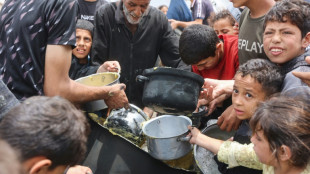 Gaza faces 'critical risk of famine': UN report
Gaza faces 'critical risk of famine': UN report
-
Indian teams defuse bombs in Kashmir border areas
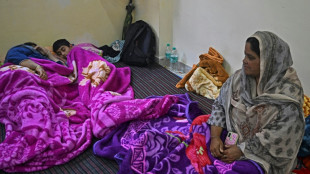
-
 Kim Kardashian testifies in Paris multi-million-dollar robbery trial
Kim Kardashian testifies in Paris multi-million-dollar robbery trial
-
Alexander-Arnold exit will not overshadow Liverpool title party: Van Dijk


Trickling stream offers lifeline to survivors of Ukraine war zone
The water trickling from a pipe sticking out of a mound of dirt in Ukraine's besieged city of Lysychansk offered the last lifeline to the emaciated bricklayer's family of nine.
Artyom Cherukha crouched and listened to the shells whistling between shifting Russian and Ukrainian positions around him while slowly filling his plastic bottles from the natural spring.
A man-sized tail end of an Uragan missile hung between some branches of a tree a few steps above his leafy ravine.
But the 41-year-old seemed oblivious to the fact that the weapon could unleash death and destruction overhead.
He waited for the drips of water with his elbows planted on his knees and stared without moving.
"I feel total apathy. I am morally starved -- not to mention physically," he said in a voice devoid of emotion.
"We sit here counting the bombs."
- 'It can hit anywhere' -
A crescent of industrial cities across Ukraine's eastern front -- populated by an untold number of residents hiding in cellars and basements -- are steadily losing access to water and food.
Lysychansk was an important coal mining centre with centuries-old churches and 100,000 workers before Russia invaded its pro-Western neighbour on February 24.
The city's ghostly streets now stand in ruins while its surrounding roads are being shelled with a ferocity that has forced all humanitarian supply missions to stop.
The highways leading out of Lysychansk and its sister city Severodonetsk are witnessing an organised retreat by some of Ukraine's most hardened units and their biggest guns.
The few vehicles speeding in at breakneck speed to try and avoid the rockets and mortar fire appear to be primarily linked to rescue operations for Ukraine's wounded troops.
Some of the residents trapped inside who come out to catch a glimpse of the sun and fill their bottles from the stream have the glazed look of shock.
"There is no water in the city. We come here because that is all there is," welder Andriy Tytyunkov said in a halting voice.
"But when the bombing is really bad, you have to stay inside," the 39-year-old said. "If it gets really heavy, it can hit anywhere."
- 'Repairs not possible' -
Generations of Lysychansk residents in the northern part of the city facing Severodonetsk have been coming to their hidden spring in critical times.
Locals said this happened in World War II and then again when Russian-backed insurgents overran parts of Ukraine's east in 2014.
The city's civil-miliary administration attributed the current water stoppage to unspecified damage that could not be repaired until the fighting stopped.
"There will be no water in the city until the end of the war. Repairs are not possible," the administration announced on its social media feeds late last month.
The spring offers salvation -- of a sort.
Its water must first penetrate chemicals-filled earth from one of the most polluted corners of eastern Europe.
Another ravine next to the spring is filled with a bubbly waste streaming out of one of the city's numerous industrial plants.
"It needs to be boiled," former sailer Volodymyr Ivanov said while holding up his bottle against the sun.
"It looks fairly clean but no one has ever tested it. Who knows what is inside."
- 'Almost no food' -
Yet even the simple task of boiling water becomes a life-threatening dilemma in times of war.
Cherukha boils his on a counter top because the city still has gas. A cut would force him to start building fires in his yard.
"But people are too scared to do that. Someone will see you there and might decide to shoot. You just never know how people's minds work these days," he said.
Then there is the lack of food.
Cherukha said the last humanitarian supplies reached the city at the start of last week.
"We have almost completely run out. I am dead serious," he said with a nod of the head.
"My kids are little and run around smiling and laughing. Laughing is good. But they do not understand," Cherukha said.
He expects his supplies to last him another two or three days.
"Even if we try our best to stetch it out and feed the children once a day, we would only have enough for three days. How do you tell your children there is nothing to eat?"
O.M.Souza--AMWN